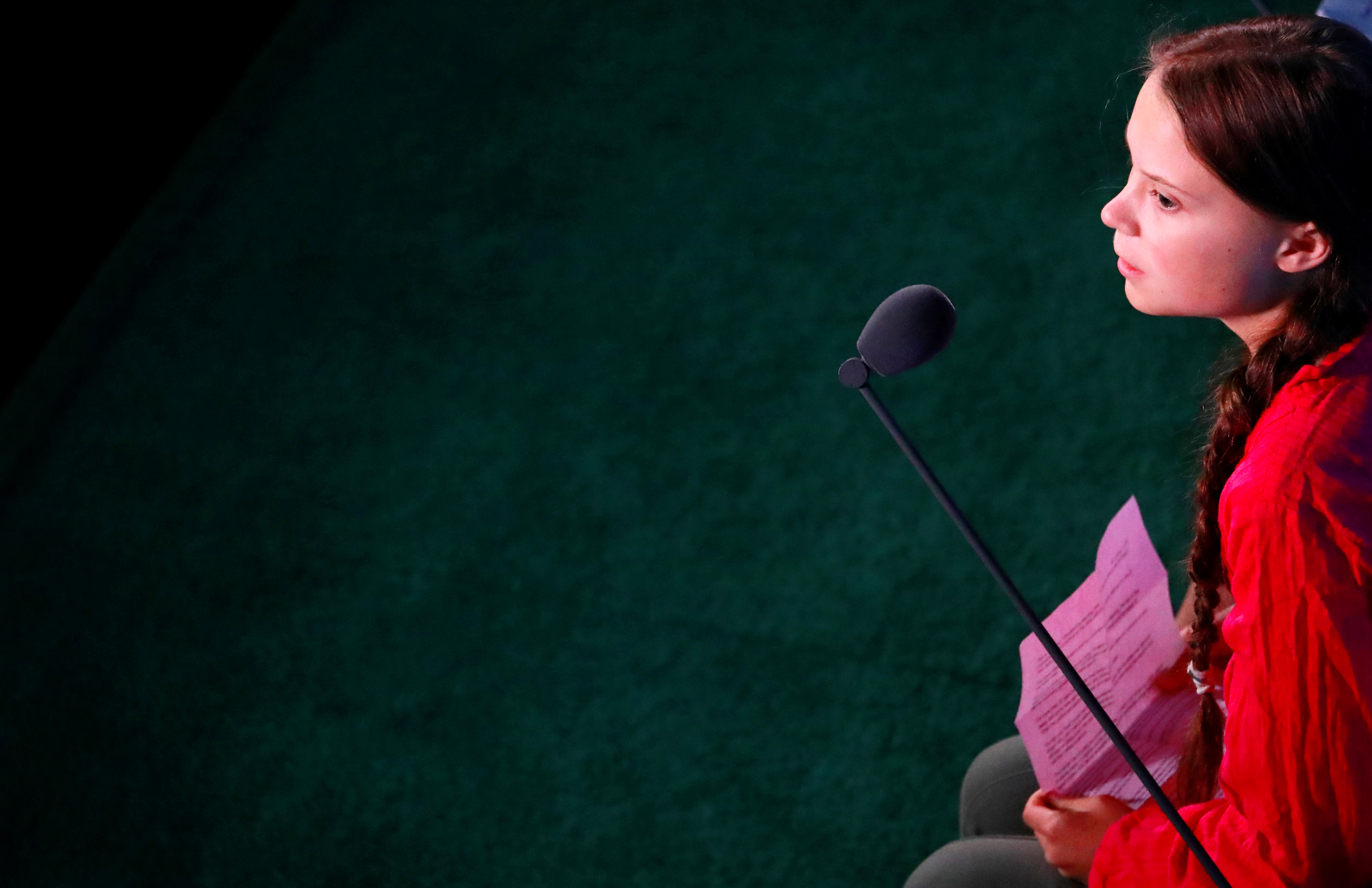Hating Greta
Why do some adults find her message so threatening?


A free daily email with the biggest news stories of the day – and the best features from TheWeek.com
You are now subscribed
Your newsletter sign-up was successful
This is the editor's letter in the current issue of The Week magazine.
July was the hottest month ever recorded. This summer, the sea ice in the Arctic and Antarctic retreated to record lows, and Greenland's massive ice sheet lost billions of tons of ice — even in the center, far from the coasts. "The cold, boring interior of Greenland is waking up," said scientist Mike MacFerrin. Seas are rapidly rising. In America's Southwest, a 19-year-long drought is draining the Colorado River and its reservoirs, endangering water supplies to seven states. Climate activist Greta Thunberg's warnings that our planet is careening toward catastrophe may be overly apocalyptic, and her condemnation of adults — "How dare you!" — adolescent in its righteousness. The world, fortunately, will not end in 10 years, or 20. But Thunberg's fear that her generation will inherit a profoundly damaged planet is not a child's bad dream. So why, then, do some people find the 16-year-old Thunberg's missionary zeal so unnerving, and react to her impertinence with such rage and contempt?
On Fox News, a pundit this week described Thunberg — who has Asperger's — as "a mentally ill Swedish child." Fox host Laura Ingraham called her U.N. address "chilling" and likened her to Children of the Corn, a movie in which demonic kids kill off the grown-ups. In the National Review, Rich Lowry dismissed Thunberg as a "pawn" who merely parrots what adults have told her. "Kids have nothing interesting to say to us," Lowry said. Nothing? Thunberg doesn't pretend to know what adults should do in response to climate change, but she wants to shame us into doing something. "Listen to the scientists," not me, she says. The scientists say that if greenhouse gas emissions continue at the current level, our children and grandchildren will suffer unprecedented droughts, floods, wildfires, superstorms, and famines. But human beings are selfish and shortsighted, and the world's discharge of greenhouse gases is actually growing, not declining. That, and not Greta, is what's crazy.
The Week
Escape your echo chamber. Get the facts behind the news, plus analysis from multiple perspectives.

Sign up for The Week's Free Newsletters
From our morning news briefing to a weekly Good News Newsletter, get the best of The Week delivered directly to your inbox.
From our morning news briefing to a weekly Good News Newsletter, get the best of The Week delivered directly to your inbox.
A free daily email with the biggest news stories of the day – and the best features from TheWeek.com
William Falk is editor-in-chief of The Week, and has held that role since the magazine's first issue in 2001. He has previously been a reporter, columnist, and editor at the Gannett Westchester Newspapers and at Newsday, where he was part of two reporting teams that won Pulitzer Prizes.
-
 Local elections 2026: where are they and who is expected to win?
Local elections 2026: where are they and who is expected to win?The Explainer Labour is braced for heavy losses and U-turn on postponing some council elections hasn’t helped the party’s prospects
-
 6 of the world’s most accessible destinations
6 of the world’s most accessible destinationsThe Week Recommends Experience all of Berlin, Singapore and Sydney
-
 How the FCC’s ‘equal time’ rule works
How the FCC’s ‘equal time’ rule worksIn the Spotlight The law is at the heart of the Colbert-CBS conflict
-
 Epstein files topple law CEO, roil UK government
Epstein files topple law CEO, roil UK governmentSpeed Read Peter Mandelson, Britain’s former ambassador to the US, is caught up in the scandal
-
 Iran and US prepare to meet after skirmishes
Iran and US prepare to meet after skirmishesSpeed Read The incident comes amid heightened tensions in the Middle East
-
 Israel retrieves final hostage’s body from Gaza
Israel retrieves final hostage’s body from GazaSpeed Read The 24-year-old police officer was killed during the initial Hamas attack
-
 China’s Xi targets top general in growing purge
China’s Xi targets top general in growing purgeSpeed Read Zhang Youxia is being investigated over ‘grave violations’ of the law
-
 Panama and Canada are negotiating over a crucial copper mine
Panama and Canada are negotiating over a crucial copper mineIn the Spotlight Panama is set to make a final decision on the mine this summer
-
 Why Greenland’s natural resources are nearly impossible to mine
Why Greenland’s natural resources are nearly impossible to mineThe Explainer The country’s natural landscape makes the task extremely difficult
-
 Iran cuts internet as protests escalate
Iran cuts internet as protests escalateSpeed Reada Government buildings across the country have been set on fire
-
 US nabs ‘shadow’ tanker claimed by Russia
US nabs ‘shadow’ tanker claimed by RussiaSpeed Read The ship was one of two vessels seized by the US military
